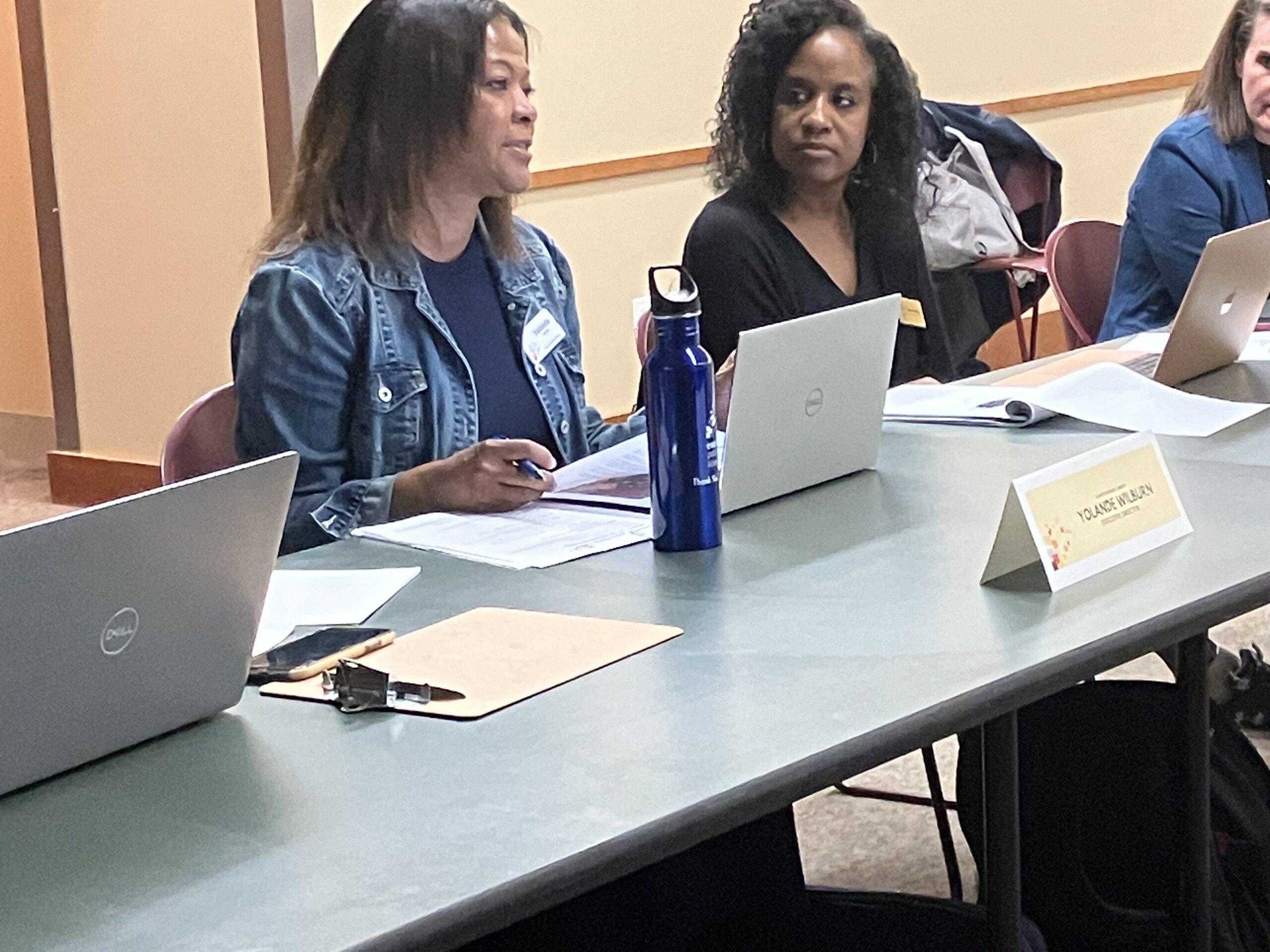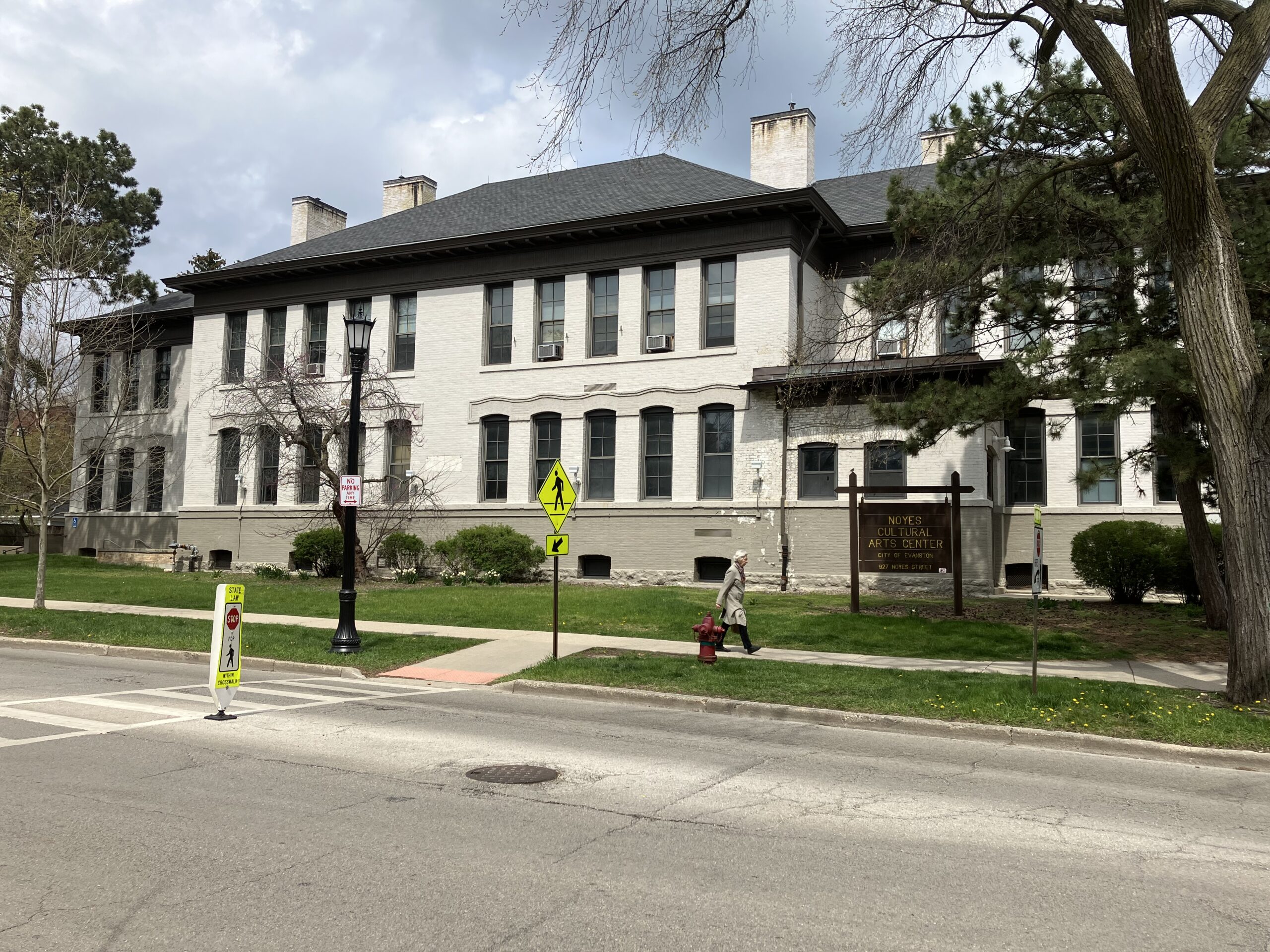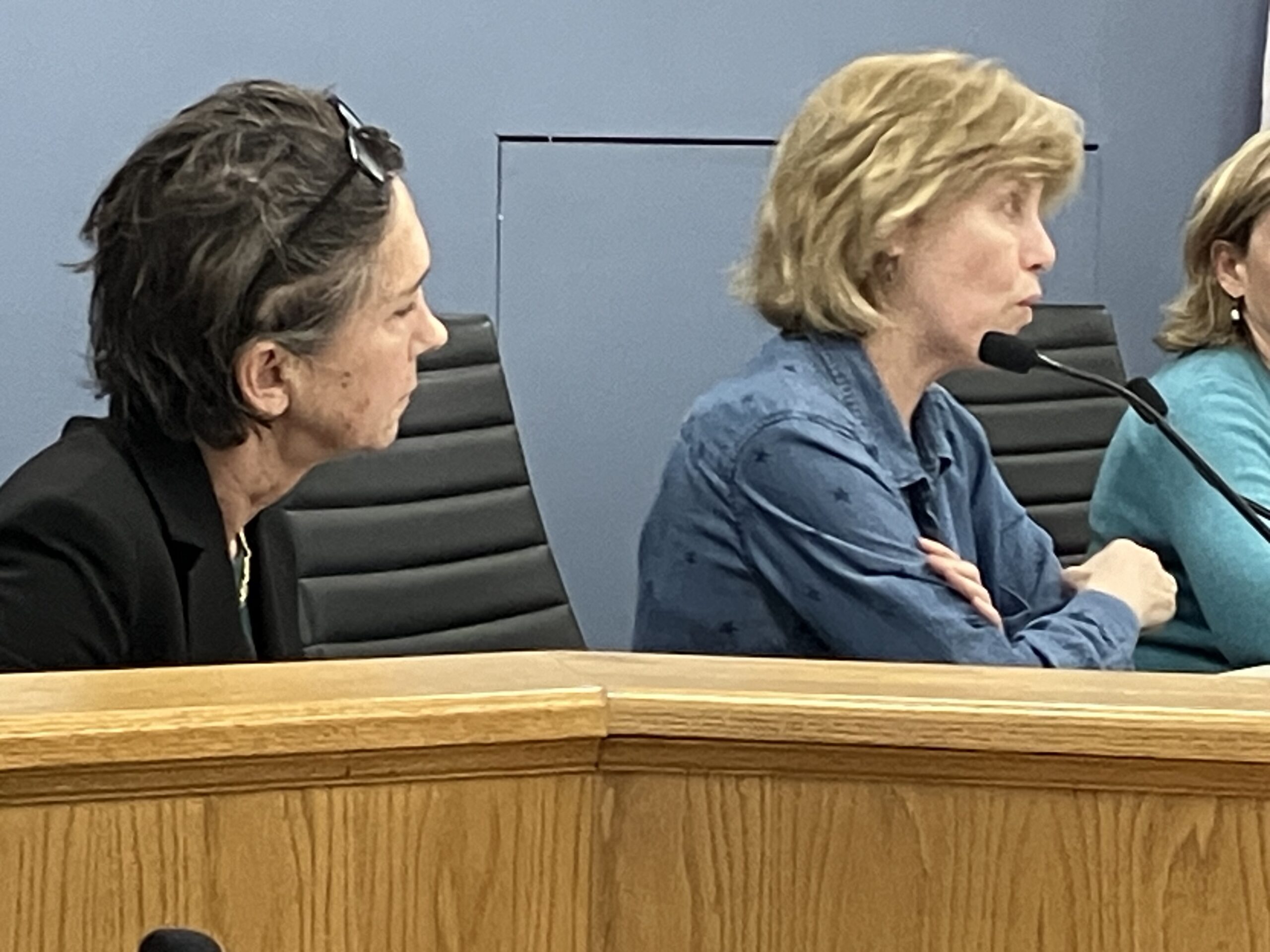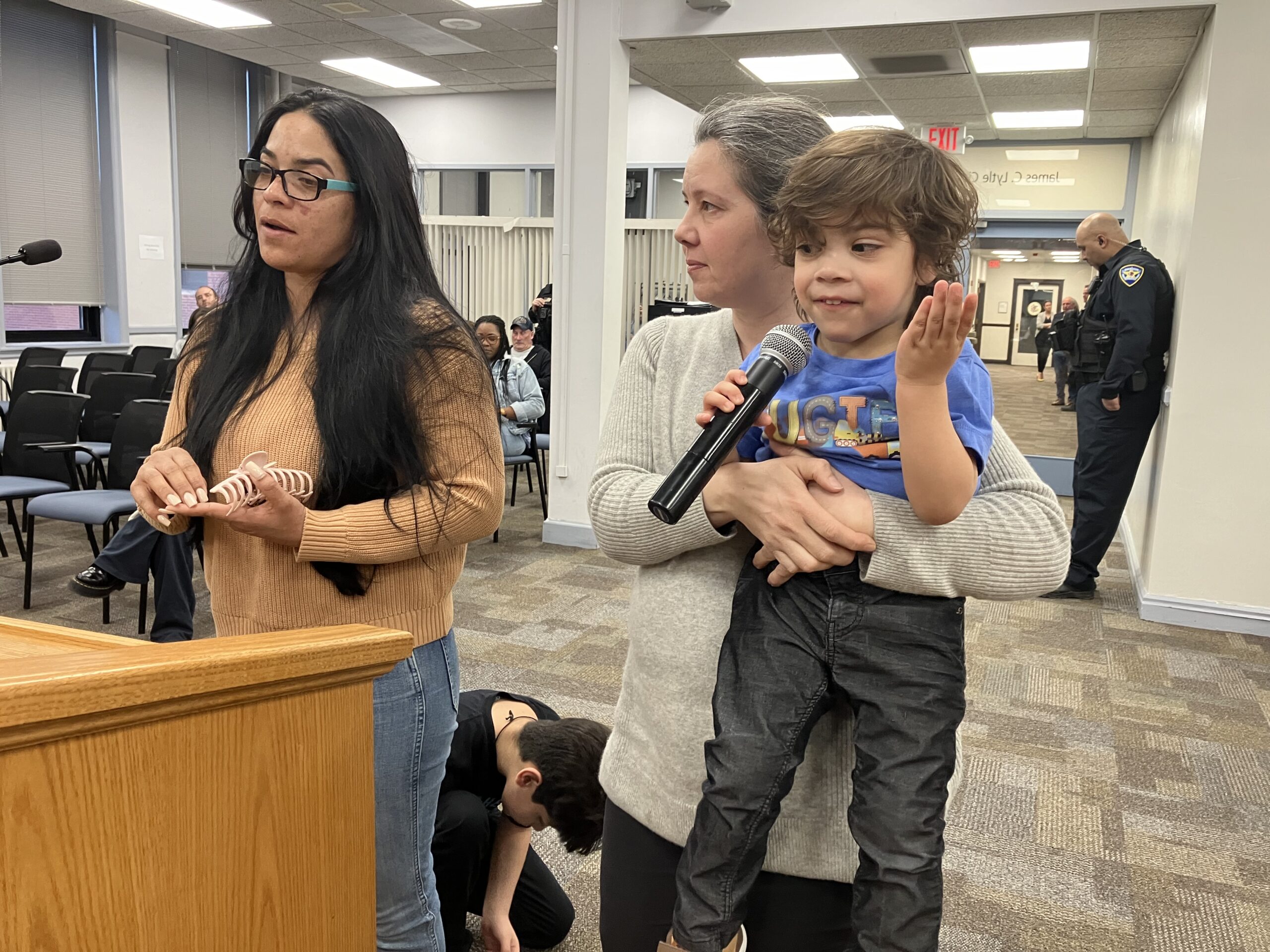By Bob Seidenberg
Evanston Public Library officials have added several new positions and stepped up staff training on de-escalating techniques for dealing with individuals experiencing crisis.
Interim Executive Library Director Heather Norborg briefed trustees on some of the moves the library has taken since a Jan. 9 incident at the main library in which an off-duty officer working as a security guard drew his gun while allegedly being beaten by a homeless man.
The fracas stirred wide discussion in the community, with some people maintaining de-escalation techniques rather than policing should be the staff’s first response in dealing with such incidents.
In her administrative services report at the April 19 meeting, Norborg told trustees that the posting of a social worker position had closed two days ago and officials are reviewing applications for the job.
“So that’s very exciting.”
At the Board’s March 15 meeting, library trustees approved a budget of $85,000 to pay for the costs of the new social worker. The library had previously contracted with Ascension Behavioral Health for the service.
After the Ascension employee in the position left to take another job in the company last December, the library and Ascension were in talks about continuing the service. In February the company informed EPL that “it is focusing on internal efforts and would not be pursuing a new contract,” Norborg reported in a memo at the March meeting.
Under the new arrangement, the social worker will serve as a full-time permanent employee of the library rather than as an employee supplied by an outside agency.
Officials also have reviewed and updated the job description for a new safety manager position, she said.
For that job, Norborg told trustees, “we researched best practices of other libraries that integrate social work and safety. So there’s less emphasis on a law enforcement background, more emphasis on the preference for social services experience, and knowledge of nonviolent crisis intervention training, trauma-informed and other more holistic approaches to behavior management.”
On the training side, the library has required members of its safety team to review multiple modules of the Librarian’s Guide to Homelessness, a book that emphasizes de-escalation training for librarians who interact with individuals experiencing homelessness.
In addition, she told trustees that next week’s staff day would include elements that stress emergency procedures and preparedness.
New focus showing results
Norborg said she’s also working with Connections for the Homeless, the Evanston homeless advocacy group, to provide in-person training on de-escalation techniques, and issues specific to working with people experiencing trauma.
“Our safety team and the rest of our staff are working diligently to provide the best service possible to our patrons, including those who are struggling,” she told the trustees.
In the past few months, “we have had more than a few occurrences when patrons have needed assistance including medical assistance, or needed positive redirection when being asked to comply with our guidelines of acceptable use,” said Norborg, who was picked by the board last June to serve as interim executive director. “And I’ve personally witnessed multiple instances of staff successfully interacting with patrons who are struggling, or successfully enforcing a rule in a calm and courteous manner. So I just wanted to let you know that these trainings are ongoing, continually being improved and we’re working hard to to really get behind that.”
More ‘intentional’ approach
In discussion later in the meeting, trustee Russ Shurbet said he would like to see the board “be more intentional,” moving away from involving policing in how the library deals with disruptions.
“I’m not an expert in this, ” he said, “but there are libraries that are really moving forward on this path and I think we can learn more.”
After the altercation in January, he said, he asked Norborg what policy the library had to deal with such situations and was told there was no explicit policy to follow.
He acknowledged that Norborg had touched on areas he had written down to raise as concerns at the meeting. Still, “I think our current process plans are in need of update and expansion in scope.”
He pointed to Arizona and California, as well as neighboring Oak Park as leading the trend of integrating equity in restorative justice practices.
“And we have organizations in our own community with a deep understanding of different options institutions can utilize,” he maintained.
“I think sadly, in our society, we push certain groups, individuals, to the margin, simply because they don’t fit society’s narrow definitions of what we currently consider as normal. And that narrative of narrowness forces these individuals to literally fight … And I think that we would want to take a much closer look at how we’re providing services and how we’re dealing with these people that are pushed away to the margins of our society.”
He suggested trustees explore guidelines centered on the restoration of safety and trust among patrons and staff, acknowledge the positions of power and privilege staff and patrons occupy and how that informs perception of each individual who may be in a certain situation.
He also suggested that the library’s executive director provide an annual public review of all safety plans, as well as reporting all safety incidents and response strategies.
Progress made
In the discussion, John Devaney, the library’s facilities manager, reminded officials of the progress the library has made.
“When I came to EPL in 2013, almost every day, we had two part-time safety monitors. We barely had any type of documentation, and they usually worked on the weekends or a couple of nights here and there. Today we have a full-blown team,” he said. “We have documentations. We did procedures — I required these guys to write in the log every hour, on the hour…”
He said it’s “a structured team,” which while not earning a lot of money, “brings a tremendous skill set.”
Shurbet said his remarks were directed strictly toward board policy and not toward the work that staff or Norborg does, sometimes under difficult circumstances.
The trustees at the meeting held off on directing Norborg to take any specific action at this time.
Trustee Esther Wallen said, “It sounds to me like this is a great conversation and should be continued.” Further, she said, some of the work being proposed “is actually already in process.”
Trustee Benjamin Schapiro said the process doesn’t have to be a formal one, “but it’s good for the board to encourage the director to do something that she’s already doing.”
“It’s good to have the board on record as saying that we do need to look at this,” Schapiro said. “We’ve got some criticism for the past where I think it was more than a little unfounded but that’s OK. But certainly we need to demonstrate that we are not ignoring that situation.”




